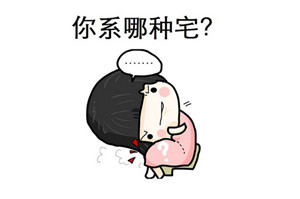
Like with any language, the meanings of certain Japanese words change over time. Take the word “otaku,” which is originally a polite way of saying “you.” It’s so polite that overusing it can make a person sound a little wishy-washy, giving the impression that he’s not really comfortable with interpersonal relationships in general. Of course, if someone isn’t spending his time interacting with other people, then what does he fill his days with? Presumably, his solitary, or at least niche, hobbies such as watching anime. And so otaku picked up a second meaning of “obsessive nerd.” That was 30 years ago though, so a recent survey sought to answer this question: What do Japanese people imagine when they hear “otaku?”
日语同其他语言一样,日语里一些词汇的含义也会随着时代的变化而变化。以“御宅”(otaku)这个词为例,这个词原本在日语中是‘你’的礼貌说法。不过‘御宅’这个词过于谦敬以至于使用次数太多会给人一种轻浮不善交际的感觉。当然,如果有人每天都不和别人打交道,那么他拿什么来打发时间呢?也许只能是他的兴趣爱好了吧,就比如说看动漫。所以‘御宅’这个词又有了第二个意思,它指的就是那些宅人们。御宅这个词在日本已经有了30多年的历史了。最近的一个调查就研究了如下课题:“日本人听到‘御宅’的时候,会想到什么”。











